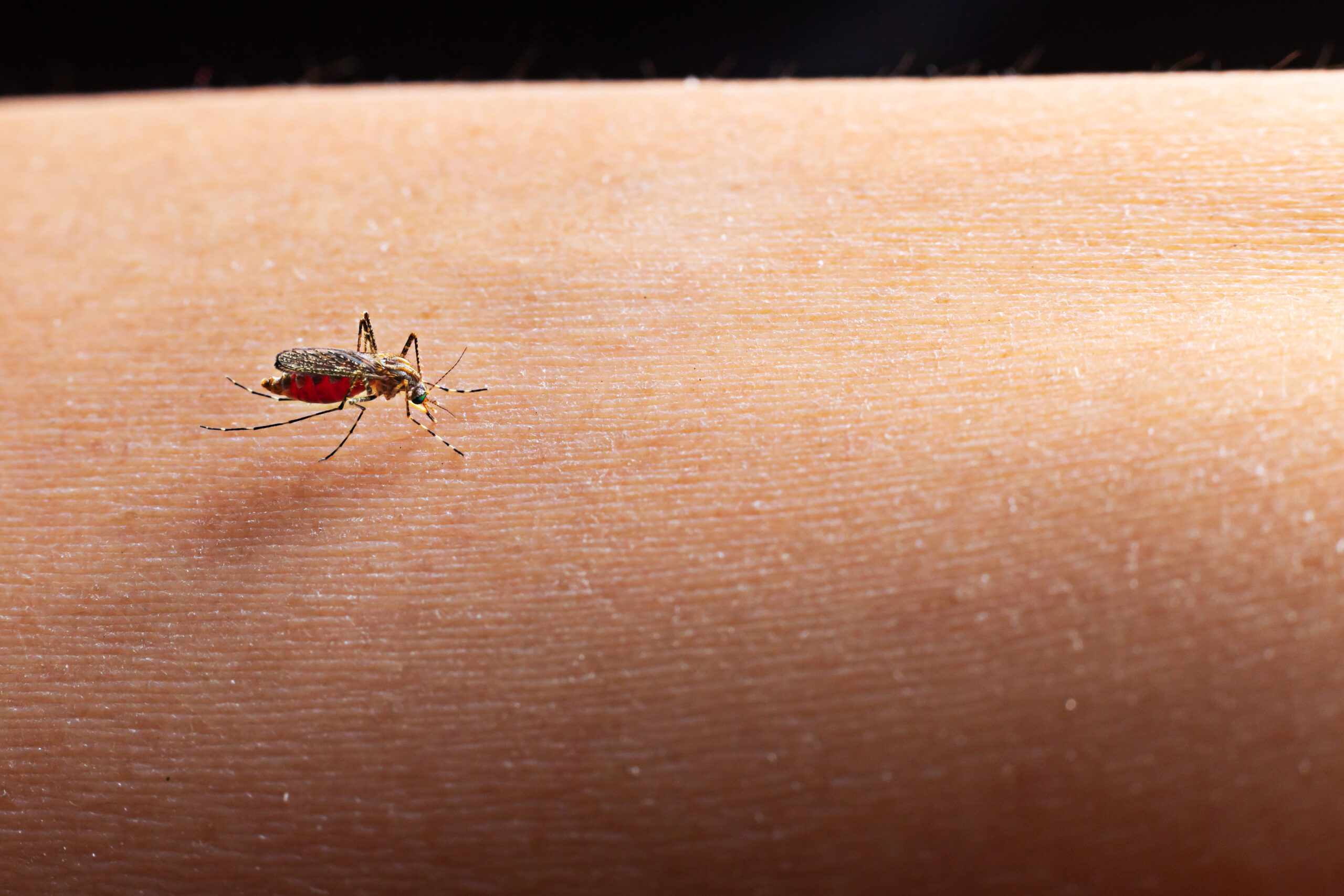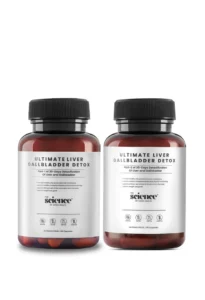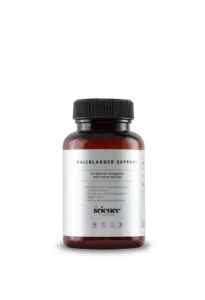Does dengue affect liver? Yes, it does. While dengue is often known for high fever, body pain, and dropping platelet counts, its impact on the liver is less talked about but equally important. The dengue virus can directly harm liver cells, leading to elevated enzymes, jaundice, and in rare cases, liver failure.
The liver is one of the most vital organs in the human body, responsible for detoxification, digestion, and maintaining blood clotting functions. When the dengue virus strikes, it creates an inflammatory response that can weaken liver function. This makes it essential to understand how dengue can affect the liver, what symptoms to look out for, and how recovery can be supported naturally.
This article explains in detail the connection between dengue and the liver, risk factors, complications, management strategies, and preventive measures for long-term wellness.
How Dengue Virus Impacts the Body
Dengue is caused by the bite of an Aedes aegypti mosquito, which transmits the virus into the bloodstream. Once inside, the virus multiplies quickly, causing the body’s immune system to release chemicals that lead to inflammation. This inflammation explains the typical symptoms of dengue such as:
- Sudden onset of high fever
- Severe headache and eye pain
- Muscle and joint pain often referred to as breakbone fever
- Skin rashes appearing after a few days of illness
- Fatigue, nausea, and vomiting
While these symptoms are the most commonly observed, the virus can also silently affect internal organs. Among these, the liver is particularly vulnerable. The question, does dengue affect liver, becomes more significant once we understand how crucial the liver is in maintaining overall health.
Does Dengue Affect the Liver?
The answer is clear: dengue does affect liver health in many patients. The virus has the ability to directly attack the cells of the liver, known as hepatocytes. When these cells are damaged, the liver cannot function at its full capacity.
Medical studies consistently show elevated liver enzymes such as AST and ALT during dengue infection. This indicates that the liver is under stress. In some cases, the liver enlargement known as hepatomegaly can also be seen during physical examination. Unlike viral hepatitis, the effect of dengue on the liver is usually temporary, but in severe cases it can progress rapidly and cause acute complications.
By asking does dengue affect liver, we highlight an essential aspect of dengue management, because liver involvement can be the difference between a mild illness and a life-threatening condition.
Signs of Liver Involvement in Dengue
Recognizing the signs of liver stress during dengue can help in timely treatment. Some of the common indicators that suggest dengue is affecting the liver include:
- Yellowing of the eyes and skin, known as jaundice
- Abdominal pain or tenderness, especially in the upper right side
- Continuous nausea or frequent vomiting
- Severe fatigue and weakness beyond the usual dengue tiredness
- Loss of appetite or aversion to food
- Dark-colored urine in some cases
These symptoms show that the liver is not functioning properly. For anyone wondering does dengue affect liver, the presence of these signs is a strong reminder that liver health should not be ignored during dengue infection.
Who Is at Higher Risk of Liver Damage from Dengue?
Not all dengue patients will experience serious liver involvement. However, certain groups are more vulnerable and must be extra cautious. These include:
- Children, who often have weaker immunity and may develop severe symptoms more quickly
- Adults with pre-existing liver conditions such as fatty liver disease, hepatitis B or C, or alcohol-related liver problems
- Patients suffering from severe forms of dengue like Dengue Hemorrhagic Fever or Dengue Shock Syndrome
- People who regularly take medications that stress the liver, making them more susceptible to damage during infection
For such groups, the question does dengue affect liver becomes particularly critical. They should be monitored closely with regular liver function tests during dengue infection.
Complications of Dengue-Related Liver Damage
Liver complications in dengue vary from mild to severe. While most patients recover, complications can sometimes become life-threatening. The major complications include:
- Acute liver failure, though rare, can develop quickly and requires immediate medical care
- Coagulopathy, which is impaired blood clotting, leading to increased risk of bleeding and bruising
- Prolonged fatigue, as the liver takes time to heal fully after dengue
- Persistent elevation of liver enzymes, which can delay complete recovery
- In some cases, prolonged jaundice or digestive disturbances may occur after denguerecovery
These complications emphasize the importance of early recognition. When asking does dengue affect liver, understanding these risks helps patients and families take appropriate action.
How Dengue-Related Liver Issues Are Managed
There is no specific antiviral drug for dengue, but supportive management can reduce the stress on the liver and speed up recovery. Doctors usually recommend:
- Maintaining hydration through fluids, oral rehydration solutions, and soups
- Eating light, nutritious meals that support liver repair such as fruits, vegetables, and lean proteins
- Monitoring liver enzyme levels through blood tests
- Avoiding medications that harm the liver such as NSAIDs and excessive doses of paracetamol
- Hospitalization for severe dengue patients showing jaundice, bleeding, or dangerously high liver enzymes
Management focuses on supporting the liver naturally while the body fights off the infection. Patients often wonder does dengue affect liver permanently, but with correct supportive care, the liver usually recovers completely.
Can Dengue Cause Long-Term Liver Problems?
The good news is that in most cases, dengue-related liver damage is temporary. The majority of patients see their liver enzymes return to normal within weeks of recovery. However, the answer to does dengue affect liver long-term depends on certain conditions:
- In mild dengue, the liver recovers fully without any lasting damage
- In severe dengue, patients may experience prolonged liver dysfunction or fatigue
- For people with pre-existing liver disease, dengue can worsen the underlying condition and create long-term issues
Thus, while dengue does not usually cause permanent liver damage in healthy individuals, it can leave lasting effects in patients who already had compromised liver function.
Prevention: Protecting Yourself from Dengue and Liver Damage
The best way to avoid dengue-related liver problems is by preventing dengue itself. Since there is no specific cure for dengue, prevention remains the strongest protection.
Mosquito Prevention
- Use mosquito repellents during the day and night
- Sleep under mosquito nets if possible
- Keep surroundings clean and remove stagnant water where mosquitoes breed
- Wear full-sleeved clothing in high-risk areas
Liver Protection During Recovery
- Follow a liver-friendly diet with fresh fruits, leafy vegetables, and antioxidant-rich foods
- Stay well-hydrated throughout the day
- Avoid alcohol and processed foods that burden the liver
- Take adequate rest to allow the liver and body to repair naturally
These measures not only answer the concern does dengue affect liver but also empower individuals to strengthen their body’s resilience against the infection.
Simple View of Liver Enzyme Changes in Dengue
In many patients, doctors observe:
- Normal liver enzyme range is usually between 20 and 40 U L
- During dengue, enzyme levels may rise two to ten times the normal value
This rise is one of the most reliable indicators that dengue has started affecting the liver.
Natural Healing and Holistic Care
If you are recovering from dengue or concerned about your liver health, holistic healing approaches can accelerate recovery. Smriti Kochar’s Ultra-Wellness Program focuses on restoring vitality, balancing immunity, and strengthening organs naturally. By addressing root causes and supporting the body with natural methods, you can unlock the healthiest version of yourself. Start Your Healing Journey Now.
For additional liver care support, you may explore Liver and Gall Bladder Support, a natural formulation designed to assist detoxification, improve digestion, and promote long-term liver wellness.
Final Thoughts
So, does dengue affect liver health? The answer is yes. Dengue has the ability to cause significant but usually reversible damage to the liver. With proper awareness, medical monitoring, and supportive care, most patients recover without permanent harm. However, recognizing early warning signs, avoiding harmful medications, and protecting the liver through natural methods are vital for complete recovery.
Read Our Latest Blogs
Is Apple Cider Vinegar Good For Fatty Liver | Is Sugarcane Juice Good For Fatty Liver | Which Juice Is Good For Liver |Does Smoking Affect Liver | How Many Grades Of Fatty Liver | What Is Good For Liver | How To Improve Gut Health Naturally India | How To Have Good Gut Health | Is Beer Good For Gut Health | Why Is Gut Health Important | How To Improve Gut Health India
Frequently Asked Questions
Yes, the dengue virus directly attacks liver cells and indirectly stresses the liver through the body’s immune response.
Yes, jaundice is a sign of liver involvement in moderate to severe dengue cases.
Children are more vulnerable to liver involvement because their immune systems are still developing.
In most cases, liver damage is temporary and resolves with proper care. Severe cases or those with existing liver disease may experience long-term effects.
Doctors perform blood tests to measure liver enzymes such as AST and ALT. Elevated levels indicate liver involvement.
Yes, patients with liver involvement often take longer to recover fully compared to those with mild dengue.
Fruits, vegetables, turmeric, papaya, and light proteins are helpful for natural liver healing.
Yes, certain medicines such as NSAIDs and high doses of paracetamol can harm the liver further during dengue.






